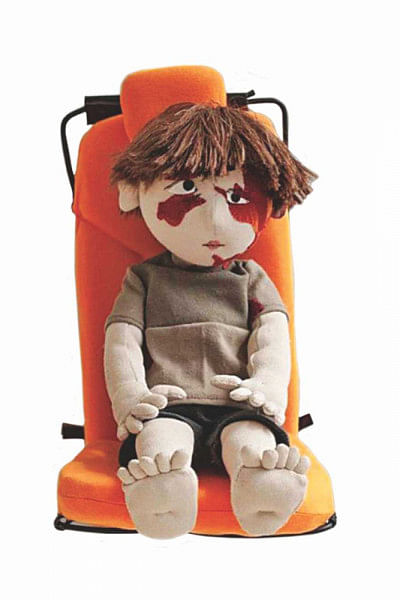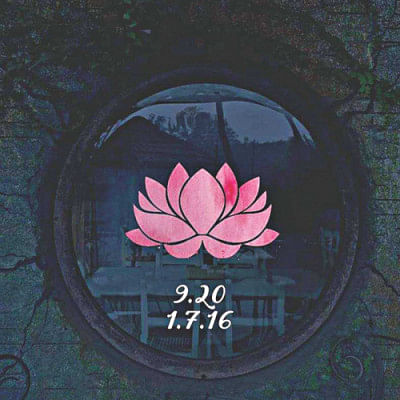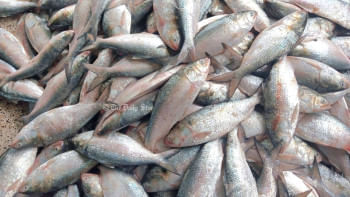2016 was THE worst. Now what?

The end of the world is a pretty commonplace incident.
We've read about those moments from which humanity could never again turn back; they were drilled into our heads as dry dates in history classes, the routine of education robbing them of their amazing power. Even in my own lifetime I can pinpoint several keystones after which life could never again be the same.
I can't forget those moments, and neither will my nephews and nieces. The teachers of the coming decades will force them to memorise their dates. 2008, 2003, 2001. And now 2016.
Make no mistake, this was a time of massive changes. Our understanding of the world has taken more hits in this year than any in my recent memory. The things we've seen and learned recently can't be ignored. A machine of hate grinds lives into the sands of the Middle East and has reached even into the heart of Dhaka to deliver us to death. Death and destruction visit people on quiet streets, markets and art exhibitions. Demagogues worldwide have won victories against our expectations of intelligence and decency. The many against the few, the few against the many. Our innocence is the constant casualty.
Innocence, after all, is just ignorance by another name. We no longer have the luxury of ignorance; that freedom was taken away from us by familiar faces posing before black flags. Now we know just how ugly, how frightening the world really is.

And how easy it is to know in 2016. Never have people had access to so much information, from so many places we will never see and people we will never meet. The bare facts of incidents are known to us all. More terrorist attacks are reported on the news than ever, that's a fact. Russia is involved in both Syria and the US election, another straightforward fact. We know these things but it's not enough to just know them. We have to understand how these facts came to be true, and we must learn how to respond to our knowledge.
We have finally reached the critical point of connectivity where we will regularly be exposed to information from all around the world that will push us to respond. The option to tune out and live in blissful ignorance is dead. 2016 has popped our cosy little bubbles.
We don't live in a world that's more violent. We don't live in a world that's worse. This is an era of unprecedented peace, freedom and prosperity. Humanity is slowly winning the battle against its host of horrors, but what troubles remain active now have a reach unprecedented. Conflict has decreased, but communications and transport technology allow conflicts to achieve global dimensions.
Less is decidedly more.
Our connectedness puts us in a state of mind that nothing in our past has prepared us for. All the news and ideas from every corner of the world play a sort of trick, creating a sense of immediacy and closeness with what we have learned. So when we hear about horror and grief in another continent, we identify with it. We're social animals, we can't help this. When we learn of attacks in Brussels, we in Dhaka feel attacked. Solidarity is a beautiful thing but what does it say of us that we feel so personally threatened? What does it say about us that the politics of Iraq and Syria not only pulled in armies from oceans away, but that it created a twisted revenge cult that seduced lonely young men in Dhaka down a path of destruction in July?
The option to respond to pain and fear with hatred and violence is just that: an option. We don't have to choose it.
In the coming years we will come closer and closer to the scenes of violence and suffering – the majority of us through the internet, not in person. Just as we can't unknow global events, we can't halt our increasing interconnectedness. The idea of preventing the world from coming to you is just a dinosaur at this point. No man can be an island. No country is alone. 2016 has ended the isolated world. Reactionary attempts to turn the clock back are fundamental misunderstandings of this awesome truth and will only hurt us.
The world ended in 2016, but not for the first time. The world ended in 2008, and before that in 2003 and 2001. 1999. 1991, with the dissolution of the Soviet Union. February 11, 1990. 1971. 1947. 1945. 1939. 1929. 1918. 1914. For better or worse events kill the world of yesterday all the time. There is always a day after, a new world to live in, built atop the ruins and bones of the old. Over, and over again. This can be a cause of despair, but I urge you to call it your cause for hope, because we always have the power to choose what tomorrow will look like. It is a choice we each make, from the President of the United States down to a stateless child born on a boat rocking on ocean waves.
That child and that president are both products of the choices we have made in the world 2016 has created. They are not the best of choices, but there's always a new day ahead.
Zoheb Mashiur is a prematurely balding man with bad facial hair and so does his best to avoid people. Ruin his efforts by writing to [email protected]

 For all latest news, follow The Daily Star's Google News channel.
For all latest news, follow The Daily Star's Google News channel. 



Comments